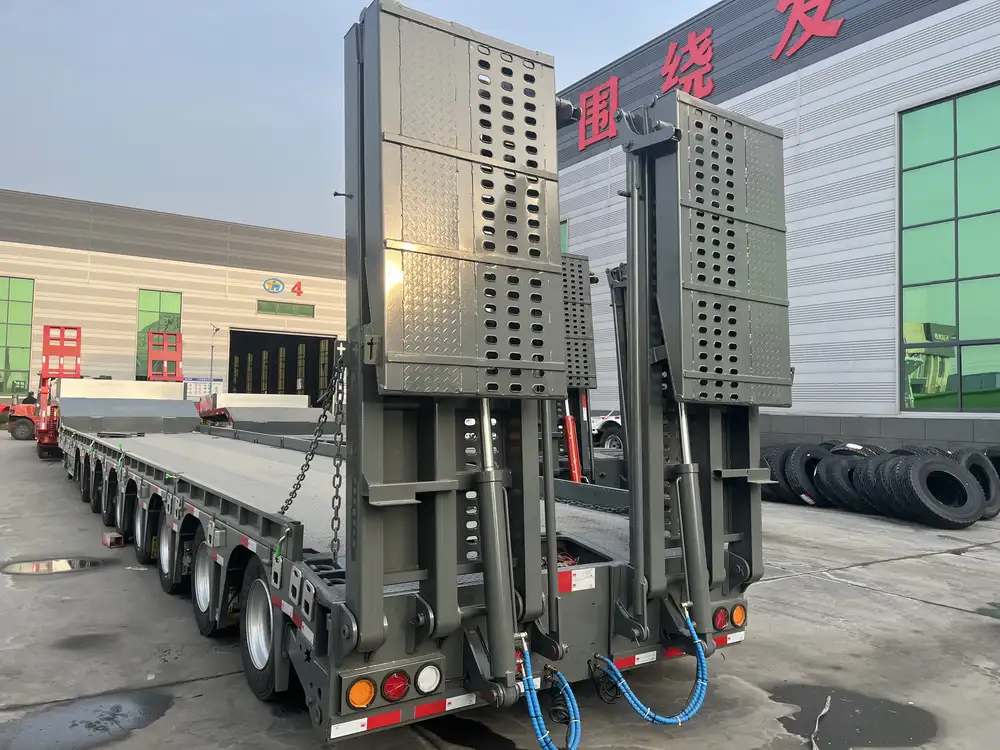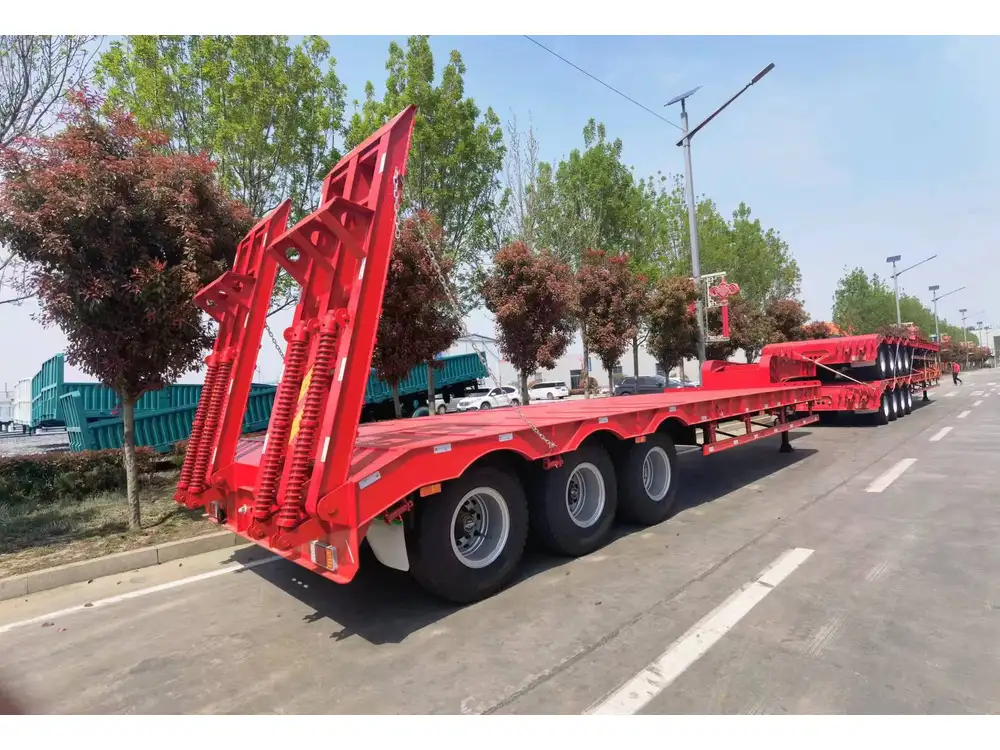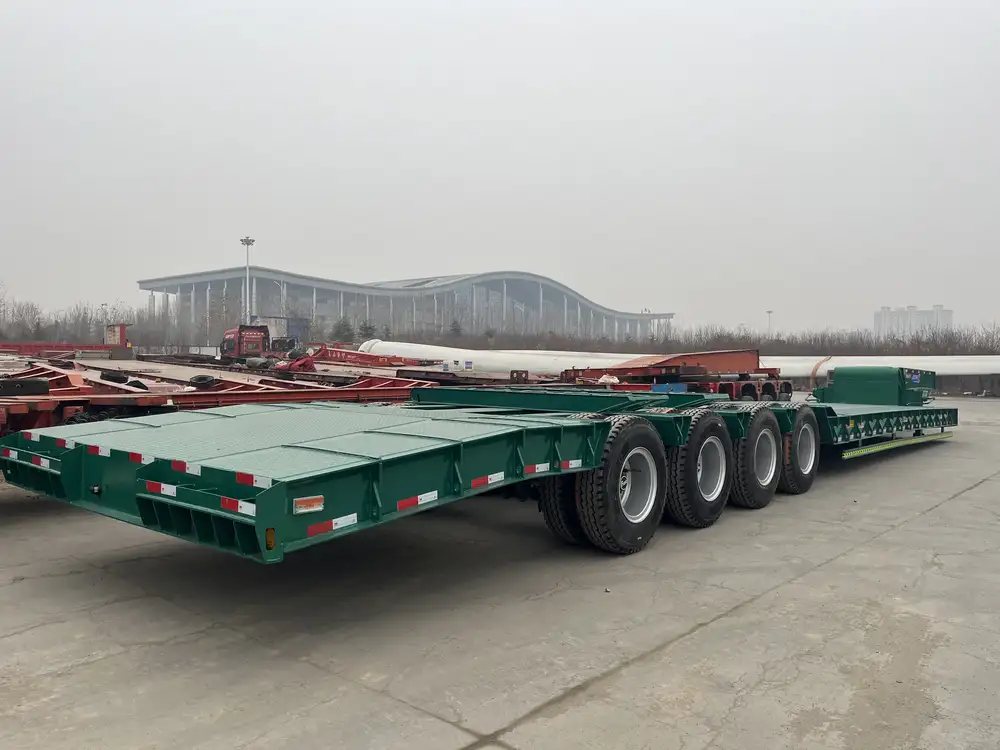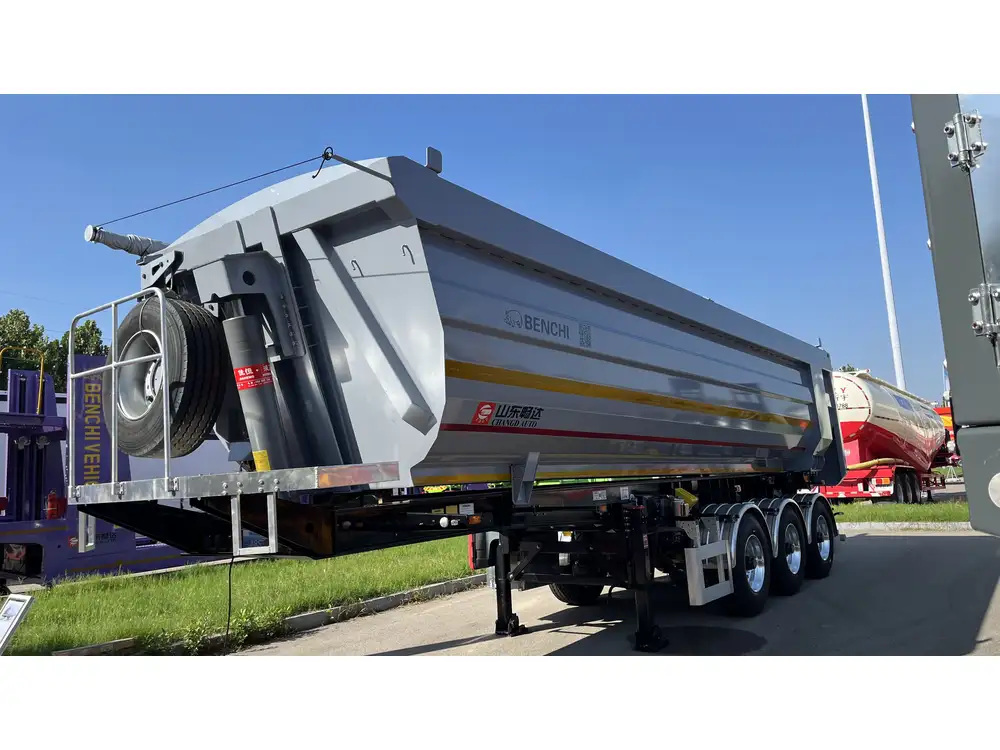Introduction to Hydraulic Dump Trailers
Hydraulic dump trailers have revolutionized the transportation and unloading of heavy materials across various industries, from construction to agriculture. These robust pieces of equipment utilize advanced hydraulic systems, allowing operators to raise and lower the trailer bed with ease. In this article, we will delve deep into the operational mechanics of hydraulic dump trailers, exploring their functionality, components, and practical applications, as well as answering some of the most frequently asked questions about their use.
What is a Hydraulic Dump Trailer?
A hydraulic dump trailer is a type of trailer designed to transport bulk materials, such as dirt, gravel, sand, and construction debris. The unique feature of a hydraulic dump trailer is its ability to tilt at an angle, allowing the contents to be dumped efficiently at the desired location. This is achieved through the use of hydraulic cylinders activated by a hydraulic pump, which generates the necessary force to raise the trailer bed.

Key Components of Hydraulic Dump Trailers
To better grasp how these trailers function, we must first dissect their primary components:
| Component | Description |
|---|---|
| Trailer Bed | The flat surface that holds materials; it can be made from steel or aluminum. |
| Hydraulic Cylinder | The device that provides the lifting force to raise the trailer bed. |
| Hydraulic Pump | Pumps fluid into the cylinders, enabling movement; it can be manually or electrically operated. |
| Control Valve | Regulates the flow of hydraulic fluid; enables the operator to raise or lower the bed. |
| Hydraulic Fluid | The medium used to transmit force through the hydraulic system; typically oil. |
| Safety Features | Includes mechanisms to prevent tipping over and ensure stable operation. |
How Does a Hydraulic System Work?
At the heart of a hydraulic dump trailer is its hydraulic system, a marvel of engineering based on Pascal’s principle. This principle states that when pressure is applied to a confined fluid, it is transmitted undiminished in all directions. Here’s a closer look at the operation:
Powering the Pump: The operation begins with the hydraulic pump, which compresses hydraulic fluid and directs it through hoses to the hydraulic cylinder.
Fluid Dynamics: Upon activating the control valve, hydraulic fluid is diverted into the cylinder, causing the piston inside the cylinder to move. This movement pushes the rod out, raising the trailer bed.
Tilting the Trailer: As the bed rises, the trailer tilts at a pre-determined angle, allowing the materials on the bed to flow out smoothly.
Lowering the Bed: To lower the bed, the operator simply reverses the valve action, allowing the hydraulic fluid to return to the pump. Gravity aids in bringing the bed back down safely.
Advantages of Hydraulic Dump Trailers
Understanding the advantages of hydraulic dump trailers can help fleet managers, construction professionals, and individual operators make informed equipment choices. Here are several noteworthy benefits:
- Efficiency and Speed: Hydraulic dump trailers can unload materials in a fraction of the time compared to manual unloading.
- Ease of Use: The straightforward controls allow for quick training of operators, reducing the learning curve.
- Versatility: These trailers can handle a wide range of materials, making them useful across various industries.
- Reduced Labor Costs: With quicker unloading, labor costs associated with manual handling decrease significantly.
- Safety Features: Many hydraulic dump trailers come equipped with safety features such as load stabilizers and emergency shut-off systems, enhancing operator safety.

Common Applications of Hydraulic Dump Trailers
Construction Industry
In the construction sector, hydraulic dump trailers are indispensable for transporting heavy materials like concrete, stone, and excavated earth. Their ability to unload efficiently reduces downtime on job sites, which can be critical for meeting construction deadlines.
Landscaping
Landscapers benefit from hydraulic dump trailers for moving soil, mulch, and decorative stones. The ease of unloading allows for quick site preparation, enhancing overall project efficiency.

Agriculture
In agriculture, farmers use hydraulic dump trailers for transporting feed, fertilizer, and other bulk materials. The ability to dump load quickly is especially useful during planting and harvesting seasons.
Waste Management
Hydraulic dump trailers are also prevalent in waste management, where they help transport trash and debris to disposal sites. Their rugged design allows them to handle heavy loads with ease.
Troubleshooting Common Issues

Hydraulic Leaks
Hydraulic leaks can impede the performance of a dump trailer. Common culprits include worn hoses or seals. To troubleshoot:
- Inspect hoses for abrasions or splits.
- Check the hydraulic fluid level and add as necessary.
- Tighten fittings and connections to prevent leaks.
Poor Lifting Performance
If the trailer bed is unable to lift properly, the issue may lie with the hydraulic fluid:
- Ensure the hydraulic tank is filled with the correct type of fluid.
- Examine the pump for signs of wear or damage.
- Test the control valve for proper function; it may need to be cleaned or replaced.
Uneven Lifting
An uneven lift can lead to dangerous situations during unloading. To address this:
- Check if the trailer is level and positioned correctly.
- Ensure the load is distributed evenly across the bed.
- Inspect the hydraulic cylinder for damage or obstructions.

Frequently Asked Questions
How Much Weight Can a Hydraulic Dump Trailer Carry?
The weight a hydraulic dump trailer can carry varies depending on its size and design. Typically, light-duty models can carry approximately 5,000 to 10,000 lbs, while heavy-duty versions are capable of supporting loads of 20,000 lbs or more.
What Maintenance is Required for Hydraulic Dump Trailers?
Regular maintenance is crucial for optimal performance. Key maintenance tasks include:
- Inspecting hydraulic fluid levels and replacing fluids as recommended by the manufacturer.
- Checking hoses and fittings for wear.
- Examining the hydraulic pump and cylinder for leaks or obstructions.

Can I Use My Hydraulic Dump Trailer in Winter?
Yes, hydraulic dump trailers can be used in winter; however, additional precautions should be taken. It’s advisable to:
- Use hydraulic fluids effective in low temperatures.
- Add protective covers to prevent frost damage.
Are Hydraulic Dump Trailers Safe?
When used correctly, hydraulic dump trailers are safe. Operators should:
- Follow manufacturer guidelines.
- Wear appropriate personal protective equipment (PPE).
- Conduct pre-use inspections to ensure all parts are functioning correctly.
Conclusion
In conclusion, hydraulic dump trailers serve as a powerful ally in a multitude of industries, simplifying the transport and unloading of bulk materials. Their operational efficiency stems from advanced hydraulic systems, ensuring that users can complete their tasks swiftly and safely. Understanding how these trailers work, along with their components and maintenance needs, empowers operators to make the most of their equipment, enhancing productivity and safety in their operations.
By addressing common issues and providing solutions, as well as offering insights into best practices, we hope this comprehensive guide equips you with the knowledge needed to effectively utilize hydraulic dump trailers in your work context, driving performance and innovation in every load you handle.



